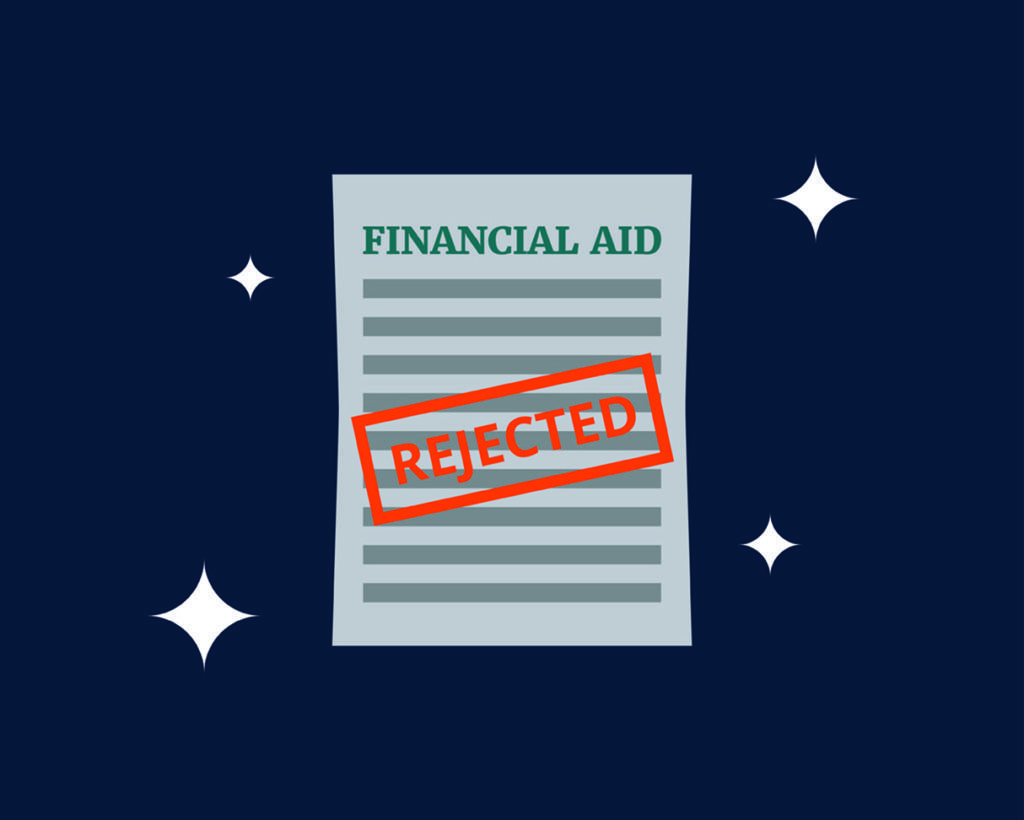Start Building Your Child’s Credit
If you’re a student or future student applying for financial aid, filling out the Free Application for Federal Student Aid (FAFSA) may be tricky, especially when it comes to reporting parental assets.
We’ve prepared this comprehensive guide to help you better understand and accurately report parent assets on the FAFSA, maximizing your chances of securing the financial aid you need to achieve your academic goals. We’ll also go through the consequences of FAFSA fraud and the benefits of having strong credit.
Parent vs. Student Assets on the FAFSA
An asset is essentially any money you can easily access (like savings) or something you can sell for a profit (like property). The FAFSA considers both your and your parents’ assets to measure your Expected Family Contribution (EFC), which determines how much need-based federal aid you’re eligible for. However, the impact of each type of asset differs significantly.
Here’s a breakdown of the key differences:
- Student assets have a higher impact on financial aid eligibility—Colleges expect families to use up to 20% of a student’s assets for college payments, even if they’re gifts from someone else. The good news is that if you have a 529 college savings plan where you’re both the owner and beneficiary and are a dependent student, it’s considered a parent asset for aid purposes
- Parent assets matter less—Colleges expect families to use up to 5.64% of parents’ assets for college. For a clearer perspective, consider that $10,000 in your name will reduce your aid eligibility by $2,000, while the same amount in your parent’s name would only reduce it by $564
What Are Considered Parents’ Assets on FAFSA?
Parent assets on FAFSA refer to any money that’s readily available or anything that can be converted to money in the future. This includes but isn’t limited to:
- Cash and bank accounts—Savings, checking, and money market accounts
- Investments—Brokerage accounts, stocks, bonds, certificates of deposit (CDs), and stock options
- Real estate—Any property other than your primary residence
- Business assets—If your family owns a business with more than 100 full-time employees, its net worth will be considered an asset
- Education savings accounts—Qualified accounts, such as Coverdell savings accounts and 529 plans (including the refund value of prepaid tuition plans)
- UGMA/UTMA accounts—These are custodial accounts for minors, but if your parents own the account (not just acting as custodians), their value will be counted as an asset
Certain assets are exempt from reporting on the FAFSA, such as:
- Annuities
- Life insurance
- The applicant’s family’s primary residence
- Achieving a Better Life Experience or ABLE accounts
- Retirement accounts (e.g., 401(k) plans, Keogh plans, non-education IRAs, pension funds, and other similar plans)
While most colleges use the FAFSA to determine your financial aid eligibility, some private colleges use a separate application called the CSS Profile to allocate aid from their own resources. This means they may consider a wider range of your family’s assets compared to the federal government, such as home equity and assets owned by divorced parents and siblings.
Other Assets That Affect Financial Aid
There are some assets that aren’t counted but still influence your financial aid eligibility, which include:
- Retirement accounts—While the FAFSA doesn’t ask about the value of retirement accounts, any contributions to and withdrawals from these accounts, even if untaxed, must be reported as income
- Assets held by others—Assets owned by third parties, such as those held by your grandparents for your college, don’t need to be reported on the FAFSA. However, once the money is transferred or used on your behalf, you must declare it as untaxed student income on future aid applications
There are also some exceptions for low-income families. If both your parents and spouse (for independent students, if applicable) earn a combined income of $49,999 or less and meet certain criteria, your family’s assets won’t be considered for financial aid.
How To Report Parent Assets on FAFSA
Here’s a step-by-step guide on how to accurately report your parents’ assets for FAFSA:
- Gather information—Collect your parents’ recent bank statements, investment statements, and any other relevant financial documents
- Review asset types—Identify all assets that need to be reported, as listed above
- Calculate value—Determine the current market value of each asset as of the FAFSA submission date
- Add it up—Sum the value of all assets to get a total
- Transfer accurate information—Correctly enter the total asset value in the designated section of the FAFSA form
What Happens if You Lie About Your Parent Assets on the FAFSA?

While small mistakes are usually no big deal, major discrepancies on your FAFSA can lead to serious trouble. The Higher Education Act of 1965 allows for hefty penalties, including:
- Up to five years in prison
- Fines of up to $20,000
- Repayment of received financial aid plus interests
Since the FAFSA considers both student and parental information, you might be wondering who is held accountable for the accuracy of the financial information provided on the application. In most cases, the parents face the consequences unless they can prove the false information was submitted without their knowledge.
But that’s not all—lying on your FAFSA application can lead to further consequences that can affect your future:
- Providing false information, including financial data, Social Security numbers (SSNs), and names on a federal document, is regarded as fraud or identity theft and can result in facing a felony charge. Whether it’s you or your parents facing the charges, a felony record can haunt you for life, affecting your chances of getting into schools or landing jobs
- Many educational institutions enforce a strict zero-tolerance policy. Don’t jeopardize your place at your preferred school by taking unnecessary risks. Most schools will expel students they find cheating, whether it involves academic matters or falsifying information on financial aid documents
- If you’re caught misreporting information on the FAFSA, you may lose your eligibility for federal student aid in the future, resulting in you not being able to afford to attend college
Does the FAFSA Require a Credit Check?

Most student loans don’t generally have a credit requirement. As a result, when completing your FAFSA application, there’s no need to provide credit information as the Department of Education won’t conduct any credit check. There are two exceptions you should be aware of:
| Type of Loan | Explanation |
| Direct PLUS loans | These loans are specifically designed for eligible parent borrowers and professional or graduate students. Whether it’s a parent or student applying for this type of loan, their credit history is checked and considered for eligibility |
| Private student loans | If federal financial aid and scholarships aren’t enough, you may consider private student loans to bridge the financial gap. Private lenders typically require a credit check, though, and may even consider your cosigner’s credit score |
This shows that while you can mostly avoid worrying about your credit history when applying for federal aid, it’s still wise to build and maintain good credit. A strong credit score can significantly improve your chances of securing a loan with favorable interest rates and terms, saving you money in the long run.
If you’re looking for an affordable way to build your credit, you should check out FreeKick. While it can be challenging for young adults to access credit options, FreeKick’s parent-sponsored credit building system offers a solution that can greatly impact your financial future.
Build Credit and Protect Your Identity With FreeKick
For a successful FAFSA application, you need a secure identity and a good credit profile. A good credit profile shows you’re good at handling finances and increases your chances of obtaining student loans, while a secure identity helps you clear FAFSA verification. FreeKick by Austin Capital Bank is an FDIC-insured deposit account that helps you both build credit and protect your identity.
Building Good Credit With FreeKick
You’re eligible for FreeKick’s credit building service if you’re between the ages of 13 and 25. This is a great way to establish a credit history early on in life, and there are only three simple steps involved:
- Create an Account—With your parents’ help, create an account at FreeKick.bank and choose a deposit that suits their budget
- Set It and Forget It—Once your parents activate the account, FreeKick will start building 12 months’ worth of credit history for you
- Keep Growing—After 12 months, your parents can close the account without any fees or continue building credit for you for another year
As a result of establishing your credit profile early, you’ll get a head start of up to five years of credit history when you turn 18, which will help you save $200,000 during your lifetime.
Securing Your Identity With FreeKick
Child identity theft happens every 30 seconds, and if you fall victim to it, your FAFSA application will suffer. You might also get charged with crimes like credit card theft, so it’s good advice for your parents to invest in protecting your identity. FreeKick’s ID protection services include:
| Services for Minors | Services for Adult Children and Parents |
| Credit profile monitoring Social Security number (SSN) monitoring Dark web monitoring for children’s personal information Up to $1 million identity theft insurance Full-service white-glove concierge credit restoration Sex offender monitoring—based on sponsor parent’s address | Credit profile monitoring SSN monitoring Dark web monitoring for personal information Up to $1 million identity theft insurance Full-service white-glove concierge credit restoration Lost wallet protection Court records monitoring Change of address monitoring Non-credit (Payday) loan monitoring Free FICO® Score monthly FICO® Score factors Experian credit report monthly |
FreeKick Pricing
FreeKick has two pricing plans:
| FDIC-Insured Deposit | Annual Fee |
| $3,000 | $0 (Free) |
| No deposit | $149 |
Each plan offers:
- Credit building for six children aged 13 to 25
- Identity protection for two parents and six children aged 0 to 25
Take the first step toward a successful FAFSA application—sign up for FreeKick today.

Freekick provides a double dose of financial empowerment and security for your whole family. It helps teens and young adults build strong credit profiles and offers identity motoring for up to two adult parents and six children under 25.





